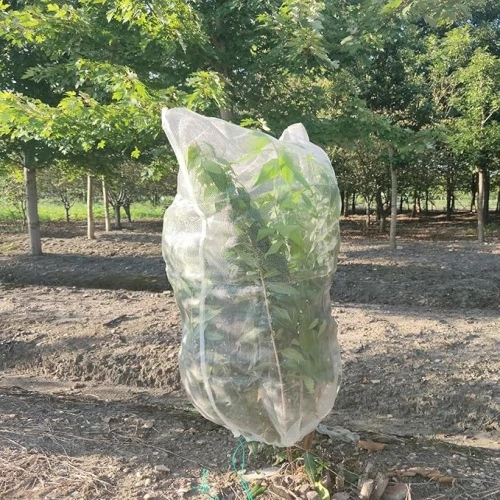-
 Afrikaans
Afrikaans -
 Albanian
Albanian -
 Amharic
Amharic -
 Arabic
Arabic -
 Armenian
Armenian -
 Azerbaijani
Azerbaijani -
 Basque
Basque -
 Belarusian
Belarusian -
 Bengali
Bengali -
 Bosnian
Bosnian -
 Bulgarian
Bulgarian -
 Catalan
Catalan -
 Cebuano
Cebuano -
 China
China -
 Corsican
Corsican -
 Croatian
Croatian -
 Czech
Czech -
 Danish
Danish -
 Dutch
Dutch -
 English
English -
 Esperanto
Esperanto -
 Estonian
Estonian -
 Finnish
Finnish -
 French
French -
 Frisian
Frisian -
 Galician
Galician -
 Georgian
Georgian -
 German
German -
 Greek
Greek -
 Gujarati
Gujarati -
 Haitian Creole
Haitian Creole -
 hausa
hausa -
 hawaiian
hawaiian -
 Hebrew
Hebrew -
 Hindi
Hindi -
 Miao
Miao -
 Hungarian
Hungarian -
 Icelandic
Icelandic -
 igbo
igbo -
 Indonesian
Indonesian -
 irish
irish -
 Italian
Italian -
 Japanese
Japanese -
 Javanese
Javanese -
 Kannada
Kannada -
 kazakh
kazakh -
 Khmer
Khmer -
 Rwandese
Rwandese -
 Korean
Korean -
 Kurdish
Kurdish -
 Kyrgyz
Kyrgyz -
 Lao
Lao -
 Latin
Latin -
 Latvian
Latvian -
 Lithuanian
Lithuanian -
 Luxembourgish
Luxembourgish -
 Macedonian
Macedonian -
 Malgashi
Malgashi -
 Malay
Malay -
 Malayalam
Malayalam -
 Maltese
Maltese -
 Maori
Maori -
 Marathi
Marathi -
 Mongolian
Mongolian -
 Myanmar
Myanmar -
 Nepali
Nepali -
 Norwegian
Norwegian -
 Norwegian
Norwegian -
 Occitan
Occitan -
 Pashto
Pashto -
 Persian
Persian -
 Polish
Polish -
 Portuguese
Portuguese -
 Punjabi
Punjabi -
 Romanian
Romanian -
 Russian
Russian -
 Samoan
Samoan -
 Scottish Gaelic
Scottish Gaelic -
 Serbian
Serbian -
 Sesotho
Sesotho -
 Shona
Shona -
 Sindhi
Sindhi -
 Sinhala
Sinhala -
 Slovak
Slovak -
 Slovenian
Slovenian -
 Somali
Somali -
 Spanish
Spanish -
 Sundanese
Sundanese -
 Swahili
Swahili -
 Swedish
Swedish -
 Tagalog
Tagalog -
 Tajik
Tajik -
 Tamil
Tamil -
 Tatar
Tatar -
 Telugu
Telugu -
 Thai
Thai -
 Turkish
Turkish -
 Turkmen
Turkmen -
 Ukrainian
Ukrainian -
 Urdu
Urdu -
 Uighur
Uighur -
 Uzbek
Uzbek -
 Vietnamese
Vietnamese -
 Welsh
Welsh -
 Bantu
Bantu -
 Yiddish
Yiddish -
 Yoruba
Yoruba -
 Zulu
Zulu
Innovative Solutions from Leading Steel Mesh Production Facility
The Importance of Steel Mesh Factories in the Construction Industry
Steel mesh has become an essential component in the construction sector, known for its strength, stability, and versatility. As urbanization continues to rise globally, the demand for high-quality building materials has surged, making steel mesh factories a crucial player in this industry. This article explores the significance of steel mesh factories, their production processes, and the benefits of steel mesh in construction.
The Importance of Steel Mesh Factories in the Construction Industry
The operation of steel mesh factories involves several stages, including wire drawing, welding, and quality control. Initially, raw steel is transformed into wires through a process called wire drawing. This involves pulling the steel through a series of dies to achieve the desired diameter. Once the wires are produced, they are shaped into mesh by either welding or weaving them together. In welded mesh production, the wires are intersected at pre-determined points and then welded using high-frequency machines to create a robust, rigid structure. In woven mesh production, wires are interlaced manually or mechanically to form a flexible sheet suitable for various applications.
steel mesh factory

Quality assurance is vital in steel mesh production. Factories implement rigorous testing protocols to ensure that the mesh meets specific standards for tensile strength and durability. This attention to quality helps prevent structural failures in construction projects, thereby safeguarding both lives and investments. Furthermore, modern steel mesh factories have adopted various innovations in production technology, such as automated machinery and computer-controlled systems. These advancements not only increase efficiency but also enhance the precision and consistency of the final product.
One of the primary benefits of using steel mesh in construction is its cost-effectiveness. By reinforcing concrete with steel mesh, contractors can reduce the quantity of concrete needed while improving the overall strength of structures. This not only lowers material costs but also minimizes construction time, leading to quicker project completion. Additionally, the use of steel mesh helps prevent cracking and deformation, which can lead to costly repairs and maintenance in the future.
Sustainability is another critical aspect of steel mesh production. Steel is 100% recyclable, making it an environmentally friendly choice for construction. Many steel mesh factories are now investing in recycling initiatives and sustainable practices. By using recycled steel to produce mesh, these factories contribute to reducing waste and conserving natural resources.
In conclusion, steel mesh factories play an indispensable role in the construction industry by providing essential materials that enhance the safety and durability of structures. Through efficient production processes, stringent quality control measures, and a commitment to sustainability, these factories ensure that the growing demand for reliable building materials is met. As construction practices continue to evolve, steel mesh will undoubtedly remain a crucial component, enabling engineers and builders to create innovative structures that stand the test of time. With their continued investment in technology and quality, steel mesh factories will support the construction industry's ongoing growth and development in the years to come.
-
Shipping Plastic Bags for Every NeedNewsJul.24,2025
-
Safety Netting: Your Shield in ConstructionNewsJul.24,2025
-
Plastic Mesh Netting for Everyday UseNewsJul.24,2025
-
Nylon Netting for Every UseNewsJul.24,2025
-
Mesh Breeder Box for Fish TanksNewsJul.24,2025
-
Expanded Steel Mesh Offers Durable VersatilityNewsJul.24,2025











